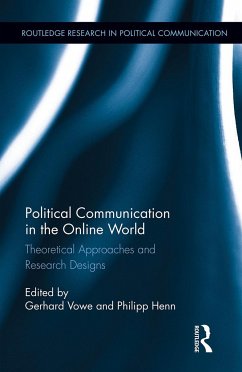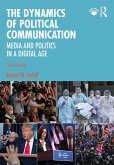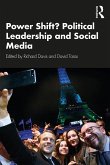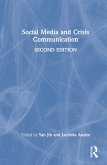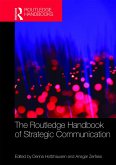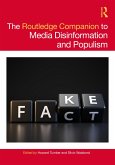As a consequence of the rapid diffusion of online media, the conditions for political communication, and research concerning it have radically changed. Is empirical communication research capable of consistently describing and explaining the changes in political communication in the online world both from a theoretical and methodological perspective?
In this book, Gerhard Vowe, Philipp Henn, and a group of leading international experts in the field of communication studies guide the reader through the complexities of political communication, and evaluate whether and to what extent existing theoretical approaches and research designs are relevant to the online world. In the first part of the book, nine chapters offer researchers the opportunity to test the basic assumptions of prominent theories in the field, to specify them in terms of the conditions of political communication in the online world and to modify them in view of the systematically gained experiences. The second methodological section tests the variations of content analysis, surveys, expert interviews and network analyses in an online environment and documents how successful these methods of empirical analysis have proven to be in political communication.
Written accessibly and contributing to key debates on political communication, this bookshelf essential presents an indispensable account of the necessary tools needed to allow researchers decide which approach and method is better suited to answer their online problem.
In this book, Gerhard Vowe, Philipp Henn, and a group of leading international experts in the field of communication studies guide the reader through the complexities of political communication, and evaluate whether and to what extent existing theoretical approaches and research designs are relevant to the online world. In the first part of the book, nine chapters offer researchers the opportunity to test the basic assumptions of prominent theories in the field, to specify them in terms of the conditions of political communication in the online world and to modify them in view of the systematically gained experiences. The second methodological section tests the variations of content analysis, surveys, expert interviews and network analyses in an online environment and documents how successful these methods of empirical analysis have proven to be in political communication.
Written accessibly and contributing to key debates on political communication, this bookshelf essential presents an indispensable account of the necessary tools needed to allow researchers decide which approach and method is better suited to answer their online problem.
'Henn and Vowe's collection reviews and expands several of the central theories and methods involved in political communication on the internet. From gatekeeping to media influence and many other topics, this book invigorates both theoretical issues in the field. The methodological sections on topics such as data mining and social networks integrate issues that cut across the field of political communication. This book will be useful for anyone seeking deeper understanding of the field.'-Jeremey Hunsinger, Wilfrid Laurier University, Canada
'This collection offers an impressive updating of political communication theory and methods for the online world. As ever more personalized and socially networked communication dominate our political lives, researchers need to think about whether old models and methods still work and, along with what new perspectives are needed. This volume addresses the full spectrum of these concerns in impressive fashion.' -Lance Bennett, University of Washington, USA
'This collection offers an impressive updating of political communication theory and methods for the online world. As ever more personalized and socially networked communication dominate our political lives, researchers need to think about whether old models and methods still work and, along with what new perspectives are needed. This volume addresses the full spectrum of these concerns in impressive fashion.' -Lance Bennett, University of Washington, USA
'Henn and Vowe's collection reviews and expands several of the central theories and methods involved in political communication on the internet. From gatekeeping to media influence and many other topics, this book invigorates both theoretical issues in the field. The methodological sections on topics such as data mining and social networks integrate issues that cut across the field of political communication. This book will be useful for anyone seeking deeper understanding of the field.'-Jeremey Hunsinger, Wilfrid Laurier University, Canada
'This collection offers an impressive updating of political communication theory and methods for the online world. As ever more personalized and socially networked communication dominate our political lives, researchers need to think about whether old models and methods still work and, along with what new perspectives are needed. This volume addresses the full spectrum of these concerns in impressive fashion.' -Lance Bennett, University of Washington, USA
'This collection offers an impressive updating of political communication theory and methods for the online world. As ever more personalized and socially networked communication dominate our political lives, researchers need to think about whether old models and methods still work and, along with what new perspectives are needed. This volume addresses the full spectrum of these concerns in impressive fashion.' -Lance Bennett, University of Washington, USA

